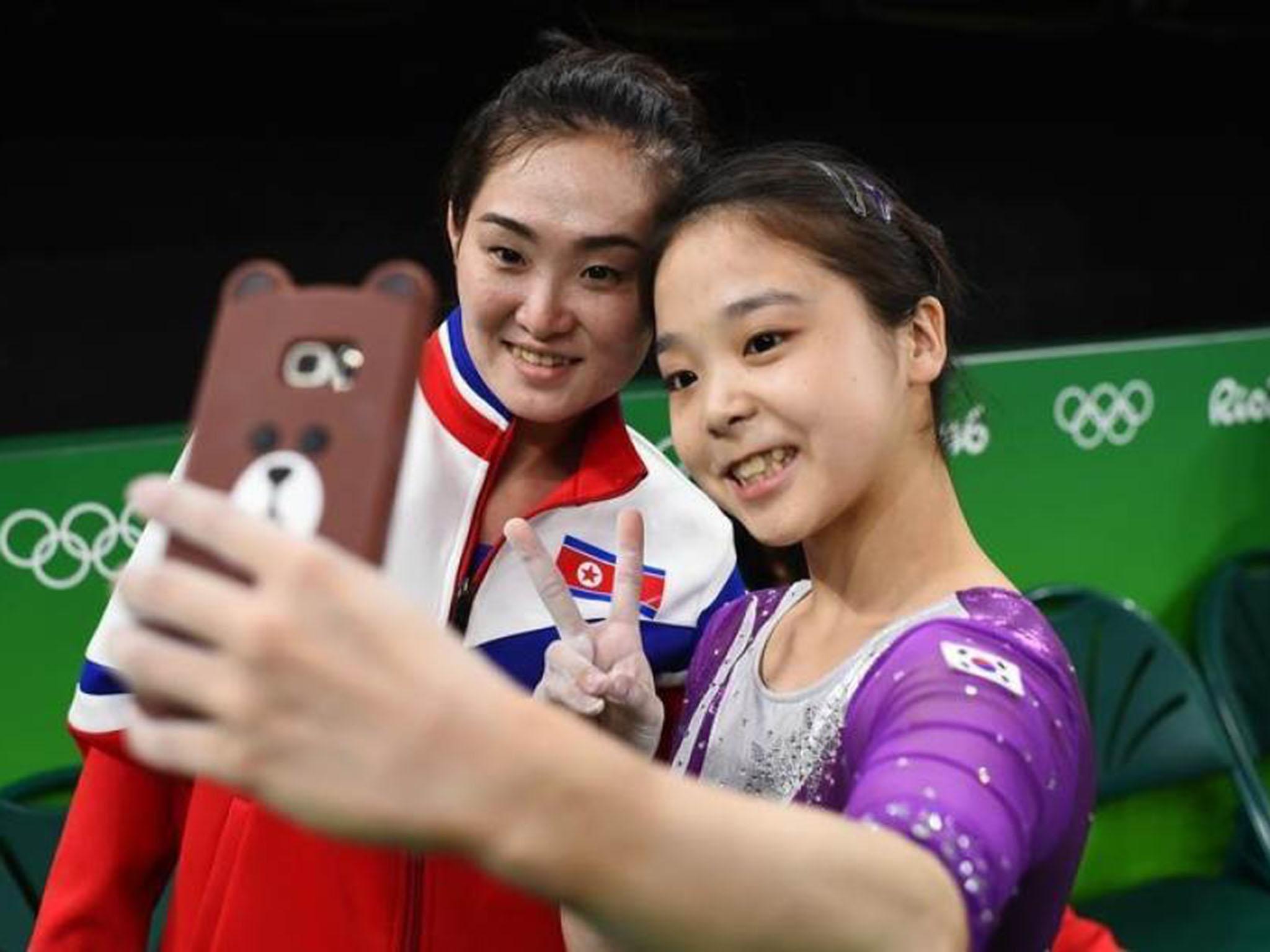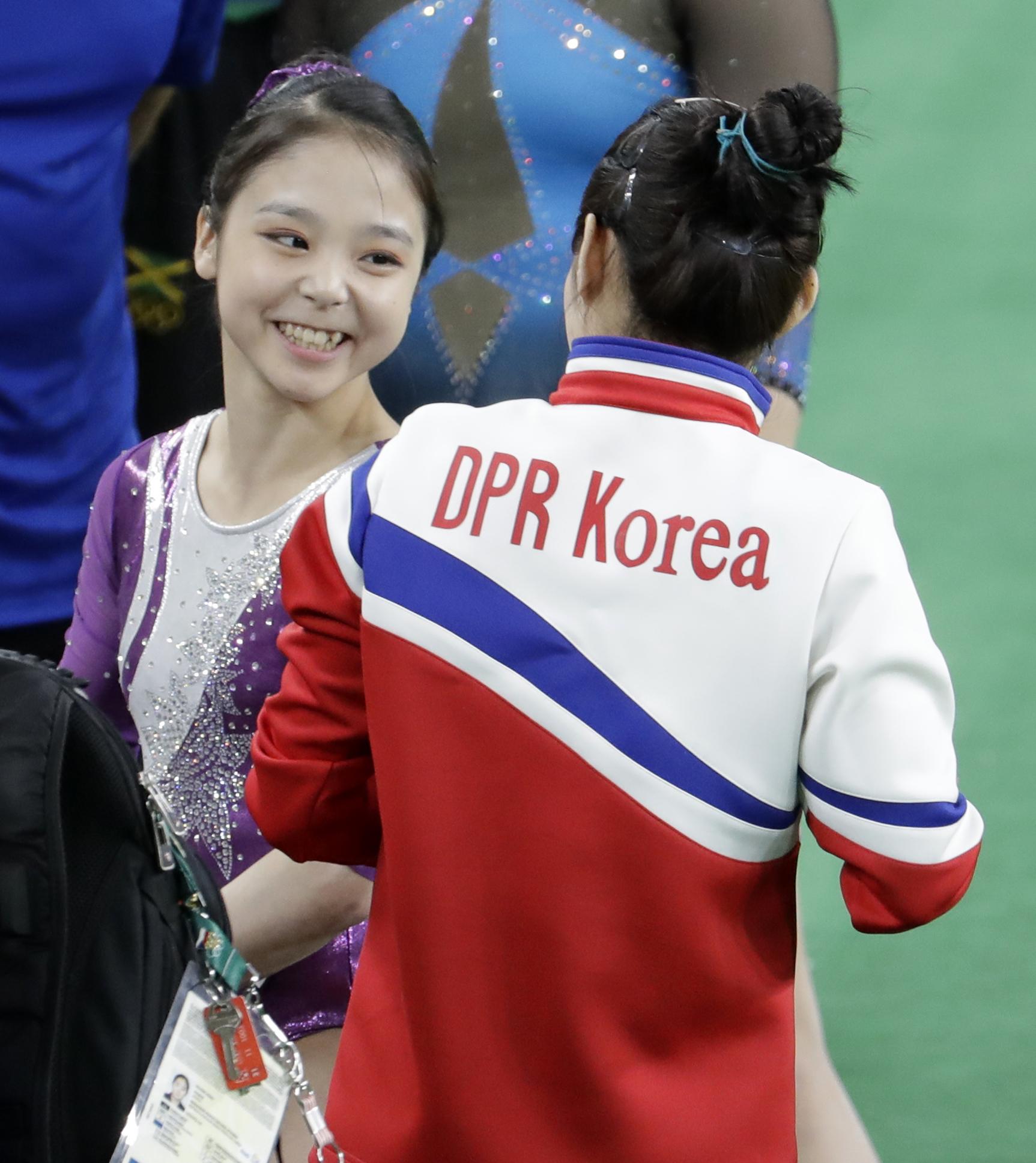After Lebanese-Israeli strife and Serbia refusing to share podiums with Kosovo, a Korean selfie saves the Olympic spirit
You couldn’t help but feel sorry for Yulia Efimova, who entered the arena to boos and whose American counterpart Lilly King refused to shake her hand

Your support helps us to tell the story
From reproductive rights to climate change to Big Tech, The Independent is on the ground when the story is developing. Whether it's investigating the financials of Elon Musk's pro-Trump PAC or producing our latest documentary, 'The A Word', which shines a light on the American women fighting for reproductive rights, we know how important it is to parse out the facts from the messaging.
At such a critical moment in US history, we need reporters on the ground. Your donation allows us to keep sending journalists to speak to both sides of the story.
The Independent is trusted by Americans across the entire political spectrum. And unlike many other quality news outlets, we choose not to lock Americans out of our reporting and analysis with paywalls. We believe quality journalism should be available to everyone, paid for by those who can afford it.
Your support makes all the difference.On a human level you simply had to grieve at the sight of the distraught Russian swimmer Yulia Efimova sitting at a press conference table on the brink of tears in the early hours of Tuesday, while her American rival Lilly King explained why she would not shake her hand.
“I would not want to be congratulated by someone who was criticising me,” King said, staring implacably ahead. “If she wanted to be congratulated I apologise.” Efimova was positioned a few yards to her left. Her sadness and desperation, on a night when she had entered the arena to boos, did not seem to be calculated.
And then, just when it seemed that the Rio Olympics would be remembered as the Games of suspicion, we were treated to an altogether more simple and uncomplicated image. It was South Korea’s Lee Eun Ju and North Korea’s Hong Un Jong, standing together for a selfie as they prepared to compete in the qualification event for the artistic women's gymnastics. Minutes earlier, the two young women shared laughter and conversation which belied the bitter feud between their home nations.
The Reuters photographer whose image this was, Dylan Martinez, has provided us with something iconic. The image reveals the bright optimism of youth, as the younger of the two, 17-year-old South Korean Lee, offers a victory "V" in fun and holds out her phone before the two of them.
She and Hong are both about to compete intensely. Both their countries are strong in the sport and both have produced many world-class gymnasts. They arrived here in Rio from opposite sides of a great divide. Yet for a brief moment in the Arena Olímpica do Rio, where the gymnastics competition is under way, that amorphous entity called the Olympic spirit prevailed.

Summoning it up is not proving easy for everyone. We are hearing here that Serbian officials have told their athletes not to appear on any of the medal stands alongside their Kosovan counterparts, despite their athletes only competing in two events. This is Kosovo’s first Olympic Games since it declared independence from Serbia in 2008 and its delegation of athletes numbers only seven. A mere two are taking part in the same event as Serbians.
The Lebanese Olympic team appear to have prevented their Israeli counterparts from boarding a bus they were assigned to share, enroute to Friday’s opening ceremony, according to a Facebook post by Israeli sailing coach Udi Gal.
Gal, writing in Hebrew, claims that once the Lebanese delegation discovered they were sharing with Israelis, they approached the bus driver and asked to close the door before they boarded. The head of the Lebanese Olympic delegation, Salim al-Haj Nakoula, told a Lebanese newspaper that the Israeli delegation had been “looking for trouble.”
The accusations and recriminations in the aquatic centre are of a different kind. Two swimmers – King and the Australian Mack Horton – have succeeded where the International Olympic Committee have failed, in demanding that the fight against drugs be relentless and uncompromising. Horton was competing against the Chinese Sun Yang, who served a derisory three-month ban for taking heart-strengthening drugs.
But it has taken Lee and Hong to deliver the Games to a higher plain and demonstrate something which transcends the political struggles and the fight against the cheats which will roll on to the next Games in Tokyo and beyond. It is the mighty, inalienable, beautiful power of the sports we love to break down barriers and unite us all.
Join our commenting forum
Join thought-provoking conversations, follow other Independent readers and see their replies
Comments